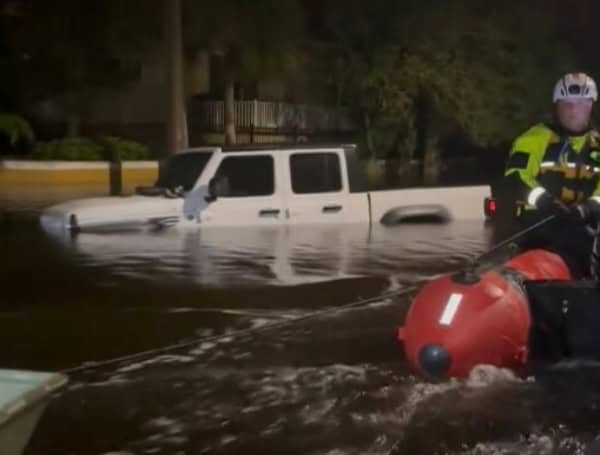With the official start of the Atlantic Hurricane Season on June 1st, residents across Florida are urged to finalize their preparations for the potentially dangerous storms that can impact the state through November 30th. Hurricanes are powerful natural events capable of causing widespread destruction through multiple hazards.
These tropical systems are not just a concern for Florida’s extensive coastline.
While storm surge historically remains the leading cause of hurricane-related deaths in the United States, damaging winds, torrential rainfall leading to inland flooding, and dangerous rip currents can affect communities far from where a storm makes landfall.
READ: Colorado State University Researchers Forecast Above-Average 2025 Atlantic Hurricane Season
Every resident in Florida needs to understand their specific risks related to wind, rain, and water.
Emergency management officials emphasize that waiting until a storm is approaching is too late. Now is the time to prepare.
Know Your Risk: Understand the potential threats in your specific location, including vulnerability to storm surge, flooding, wind damage, and even tornadoes.
Make an Emergency Plan: Develop a detailed plan for your household, ensuring everyone knows what to do, where to go, and how to communicate. Include plans for work, school, and care facilities. Businesses should also have continuity plans.
Know Your Evacuation Zone: Identify if you live in a designated evacuation zone. Learn your evacuation routes, practice them, and determine where you will stay if you need to leave your home. Always follow instructions from local emergency officials.
Recognize Warnings and Alerts: Have multiple ways to receive emergency alerts, such as downloading the FEMA app, signing up for local community alerts, and being aware of the Emergency Alert System (EAS) and Wireless Emergency Alert (WEA).
Consider Those with Disabilities: Identify any individuals in your household who may need additional assistance during an emergency and incorporate their needs into your plan.
READ: Hurricane Preparedness Week Underway, Landscape And Tree Prep Crucial In Florida
Review Important Documents: Ensure insurance policies are up to date and secure copies of important personal documents like identification in a safe, accessible location.
Strengthen Your Home: Take steps to make your home more resilient, including clearing gutters, securing outdoor furniture, and considering hurricane shutters or impact-resistant windows.
Get Tech Ready: Keep cell phones and other essential electronics charged, especially when a storm is forecast. Purchase backup charging devices.
Help Your Neighborhood: Check on neighbors, particularly senior adults or those who may need extra help, to ensure they have their plans in place.
Gather Supplies: Assemble an emergency kit with enough supplies – including food, water, medications, disinfectant, and pet supplies – to last for several days or weeks, as access to necessities may be limited after a storm.
Staying safe during a hurricane requires vigilance. Pay close attention to emergency information and, if ordered to evacuate, do so immediately. For those sheltering in place, seek refuge in an interior room away from windows. If trapped by rising floodwaters, go to the highest level of the building, but never shelter in a closed attic.
Never walk, swim, or drive through floodwaters. Just six inches of moving water can knock you down, and one foot can sweep a vehicle away. The message is clear: Turn Around. Don’t Drown!
Returning home after a hurricane also requires caution. Wait for guidance from local officials. Be careful during cleanup, wearing protective clothing and avoiding contact with mold or debris, especially if you have respiratory issues. Do not touch wet electrical equipment or stand in water near downed power lines. Floodwater can contain dangerous pathogens and hidden hazards. Use text or social media for non-emergency communication to keep phone lines open. Document any property damage with photographs for your insurance company.
As Florida enters its most active weather season, proactive preparation is the most effective way residents can protect themselves and their families from the significant dangers posed by hurricanes.
Please make a small donation to the Tampa Free Press to help sustain independent journalism. Your contribution enables us to continue delivering high-quality, local, and national news coverage.
Connect with us: Follow the Tampa Free Press on Facebook and Twitter for breaking news and updates.
Sign up: Subscribe to our free newsletter for a curated selection of top stories delivered straight to your inbox.

